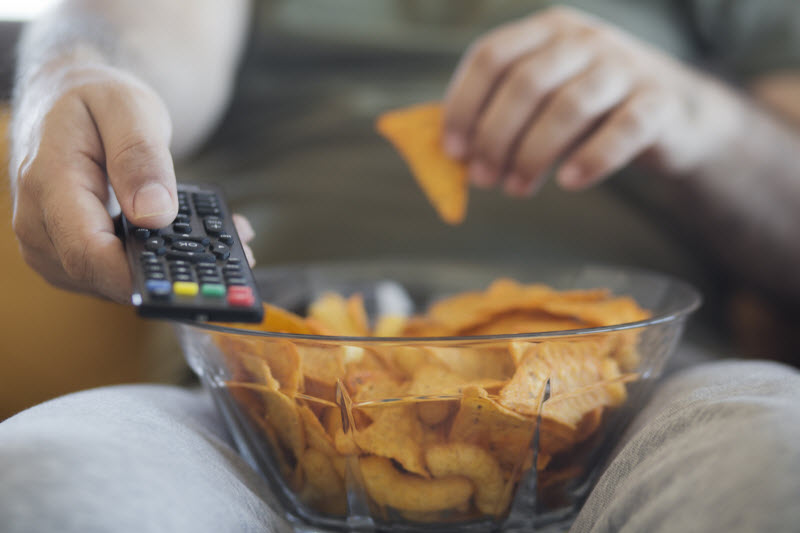Losing weight is not easy. It takes discipline to slim down, and even greater determination to stay that way.
But as the coronavirus pandemic rages, millions find themselves stuck at home – locked out of gyms, and surrounded by tempting, calorie-laden foods.
It is the perfect recipe for packing on pounds, says Erin Palinski-Wade, a registered dietitian and author of “Belly Fat Diet For Dummies” and “Walking the Weight Off For Dummies.”
“It can be easy to find yourself resorting to stress-eating, especially since food is so accessible,” she says.
So, if you recently have lost weight and now are gaining some of it back, Palinski-Wade urges you not to be too tough on yourself.
“It is OK if you eat a bit differently or your weight shifts a bit,” she says. “This is a temporary situation.”
Once you’ve forgiven yourself for any missteps, though, it’s time to put a battle plan into place that can get you through this difficult period with your waistline intact.
How to stop stress eating
If you are stuck at home, sticking to a schedule is among the best ways to keep from gaining weight, Palinski-Wade says.
“Have a consistent routine every day,” she says. That includes waking up and going to bed at the same time day after day. It also means having a set time for meals and snacks.
“This will cut down on impulse eating and grazing throughout the day,” Palinski-Wade says.
Gyms across the nation have been shuttered for several weeks as Americans try to tamp down coronavirus infection rates. Not having access to the gym might throw off your workout routine.
So, it’s important to find a way to schedule exercise and activity each day, Palinski-Wade says.
Reducing stress
Stress is one of the biggest triggers for overeating. Unfortunately, fears about the coronavirus have put a lot of us on edge.
Palinski-Wade says it is important to identify the times of day when your stress level is highest. Then, make a list of all the activities — other than food — that help to calm you.
“Maybe it’s taking a walk outside, reading a book or calling a friend,” she says.
Use the activities you’ve identified to keep you from reaching for food the next time you feel overwhelmed.
“Look at your list of stress-busting activities and pick one to do right then to help curb the desire to eat,” Palinski-Wade says.
Eliminating bad eating habits
Changing the way you eat also can help prevent binging on foods, Palinski-Wade says.
“Be mindful,” she says. “Put your food on a plate, sit down in a chair and eat at a table without distractions.”
Being more mindful and avoiding eating on the run helps you eat slower and feel more satisfied with a smaller portion, she adds.
If you tend to nibble on food throughout the day, Palinski-Wade suggests using what she calls the “baggie trick.”
“Every time you reach for a food on impulse, put it into a small plastic baggie,” she says. “When you truly see how many bites add up during the day, it makes you more aware and helps to cut down on the impulse eating.”
Being kind to yourself
Finally, Palinski-Wade reiterates that it is important to “be kind to yourself” during this time.
“This is an incredibly unusual and stressful situation,” she says. “You can’t get access to all of the foods you normally eat right now. Your support system has shifted. It is OK if you aren’t following your meal plan to the letter.”
So, she recommends focusing on the basics and keeping goals modest.
“Set the bar a little lower for yourself right now and focus on wellness over body weight,” she says.
That includes:
- Moving more than you sit
- Eating as many nutrient-rich foods as you can
- Getting plenty of sleep
- Drinking plenty of water
Palinski-Wade also suggests having at least one meaningful conversation with someone you love — in person or on the phone — every day.
“That’s more important than the number on the scale right now,” she says.

